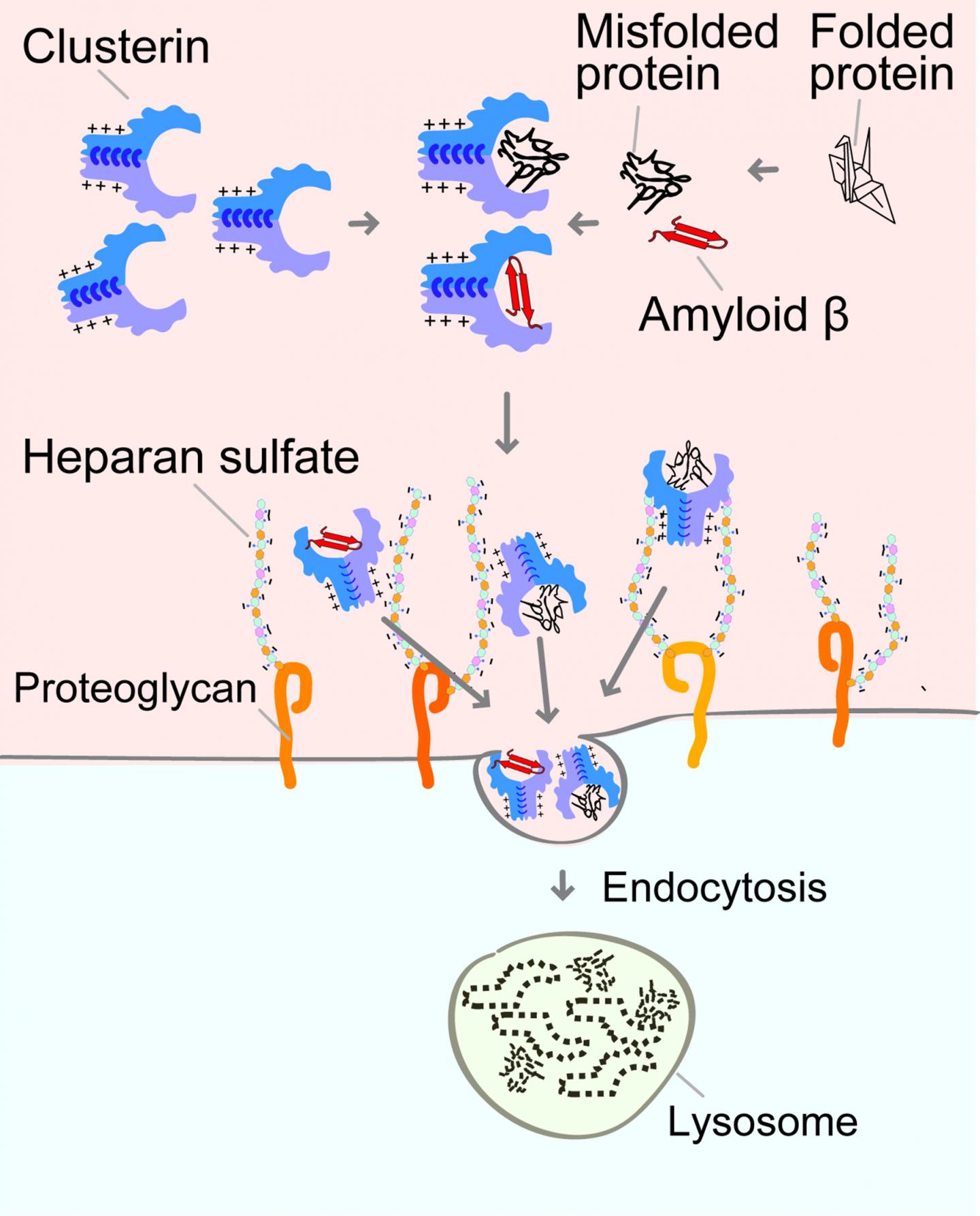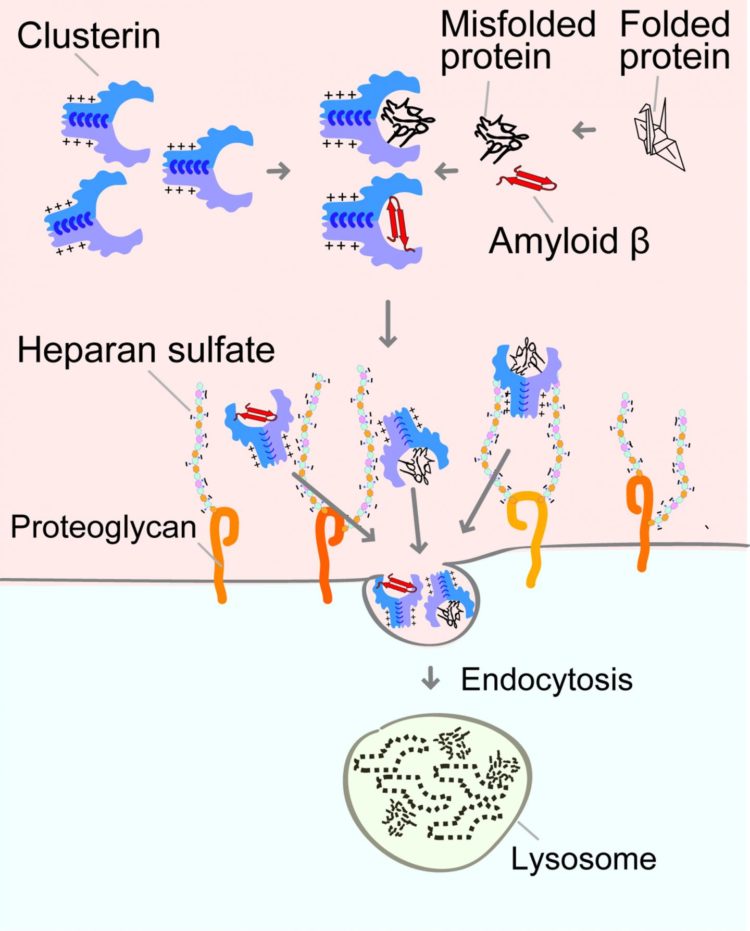
Credit: Itakura et al., 2020
Researchers in Japan have identified a new quality control system that allows cells to remove damaged and potentially toxic proteins from their surroundings. The study, which will be published February 18 in the Journal of Cell Biology, finds that the Clusterin protein and heparan sulfate proteoglycans combine to bring misfolded proteins into cells for degradation. The findings may lead to new therapeutic targets for neurodegenerative disorders, including Alzheimer’s disease.
A number of diseases are believed to be caused by the gradual buildup of misfolded proteins that can aggregate together and damage neurons and other cells in the body. To help prevent this damage, cells have developed numerous quality control systems that recognize misfolded proteins within the cell and either fold them back into their correct shape or else degrade them before they start to aggregate.
“However, approximately 11% of human proteins exist outside of the cell, where they are subjected to even more stresses that may cause them to misfold,” says Eisuke Itakura, an assistant professor in the Department of Biology at Chiba University in Japan. “In addition, Alzheimer’s disease, the most prevalent cause of dementia affecting 47.5 million people worldwide, is characterized by aggregates of amyloid β protein in the extracellular space. Despite this, how aberrant extracellular proteins are degraded remains poorly understood.”
A protein called Clusterin can bind to misfolded extracellular proteins and prevent them from aggregating. In the new study, Itakura and colleagues discovered that Clusterin can escort misfolded proteins into the cell and deliver them to the cell’s garbage-disposal units–the lysosomes–where they can be degraded. The researchers also discovered that, after binding to misfolded proteins, Clusterin enters cells by binding to proteins known as heparan sulfate proteoglycans, which are present on the surface of almost all human cells.
Itakura and colleagues found that, together, Clusterin and heparan sulfate proteoglycans allow many different cell types to internalize and degrade a wide variety of misfolded extracellular proteins. “We therefore think that this pathway is a general extracellular protein quality control system responsible for the clearance of misfolded proteins from diverse tissues and body fluids,” Itakura says.
Intriguingly, the researchers also found that Clusterin and heparan sulfate proteoglycans can import amyloid β into cells for degradation. Mutations in the gene encoding Clusterin have been linked to an increased risk of developing Alzheimer’s disease, and experiments in rats have shown that injecting Clusterin into the brain can prevent amyloid β-induced neurodegeneration. “Our results therefore suggest new avenues for the possible treatment or prevention of disorders such as Alzheimer’s disease that are associated with aberrant extracellular proteins,” Itakura says.
###
Itakura et al., 2020.J. Cell Biol. https:/
About the Journal of Cell Biology The
Journal of Cell Biology (JCB) features peer-reviewed research on all aspects of cellular structure and function. All editorial decisions are made by research-active scientists in conjunction with in-house scientific editors. JCB makes all of its content free online no later than six months after publication. Established in 1955, JCB is published by Rockefeller University Press. For more information, visit repress.org/jcb.
Visit our Newsroom, and sign up for a weekly preview of articles to be published. Embargoed media alerts are for journalists only.
Follow JCB on Twitter at @JCellBiol and @RockUPress.
Media Contact
Ben Short
[email protected]
212-327-7053
Related Journal Article
http://dx.





